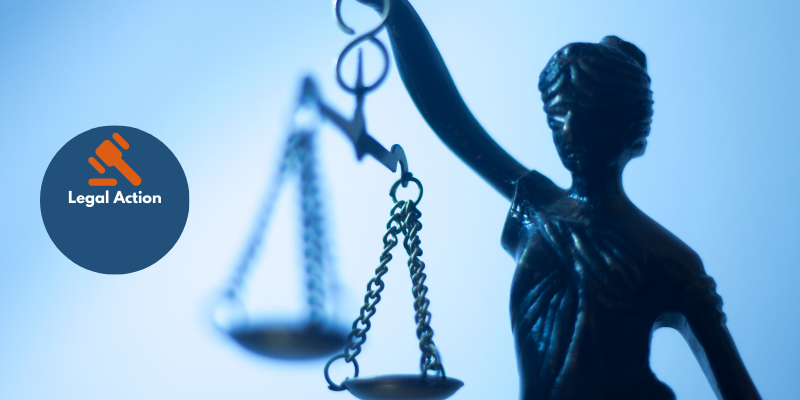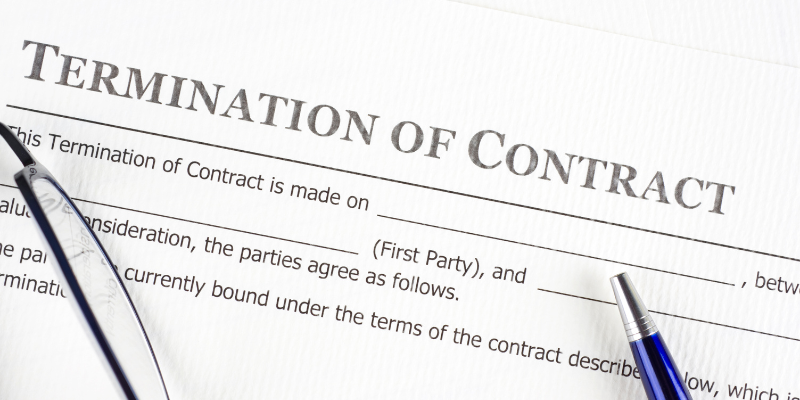Keep your sensitive business information secret by signing a non-disclosure agreement (NDA) with the involved parties.
Every company has some trade secrets that give them an edge over their competitors. Non-disclosure agreements (NDAs) function as a crucial tool to protect confidential and sensitive data. This legal agreement occurs between two or more parties during employment, merger, and acquisition.
If you want to safeguard your ideas and strategies from outsiders while sharing them with your employees, NDA is the right approach.
In this guide, we will discuss NDA and its benefits. Continue reading to learn when to use NDA and the steps that can be taken during the event of an NDA violation.
What Is an NDA?

A non-disclosure agreement (NDA), or confidentiality agreement, is a legal contract. In an NDA agreement, one party agrees to share confidential information about the business with the second party. The latter, on the other hand, agrees not to share the information with anyone else for a specified time.
The objective of NDAs is to protect sensitive information, intellectual property (IP), and trade secret from being exposed to competitors. This contract is usually needed when two parties plan to get involved in a business together but want to protect their own interest.
With NDA, releasing sensitive information about business or plans to any third party becomes legally forbidden. The parties involved in an NDA could be employers and employees/contractors or two companies.
Types of NDA
There are different types of NDAs, and you need to know about all of these to choose the right one for your purpose.
#1. Unilateral NDA
Unilateral NDAs are one-way NDAs. Here, only one party discloses its confidential information to another party that they want to safeguard. When organizations need to share sensitive information with their employees, contractors, or stakeholders and want them not to disclose that information to anyone else, these NDAs are signed. For this reason, it is the most common type of NDA.
#2. Mutual NDA
These are also known as two-way NDAs or bilateral NDAs. In it, both parties exchange private business information with each other during the negotiation, and there is a limitation on how the other party will use and share the information. Mutual NDAs are usually seen during mergers and acquisitions, corporate takeovers, and joint ventures.
When Should You Use an NDA?
Employee Recruitment

When you hire someone as your employee, you give them access to a range of confidential and proprietary data. So, employers need to make the employees sign an NDA to safeguard the information and stop them from sharing sensitive data in the present and future.
An employee trying to leave your company might share sensitive information during a job interview. So, you need to prohibit sharing with prospective employees through an NDA.
Vendor Hiring
Many companies prefer hiring freelancers or contractors for short-term projects. Even they need to access sensitive data and trade secrets to understand the business and provide their services. Employees should not ignore them and sign NDAs with them while hiring.
Client Onboarding
When you start providing services to a new client, you get access to the confidential information of that company. Even in that scenario, you need to sign an NDA agreement to declare the acceptable uses of shared data.
Entering Business Partnerships

Every business relationship should be based on trust. To establish faith, NDAs are crucial as they can ensure the limitations of using shared information. Especially companies planning to get involved through mergers and acquisitions should focus on having an NDA signed.
As these companies have to share critical finance and operations data with each other during the due diligence phase, NDAs can ensure how they use the information.
Selling Products or Services
When you sell a product or service, there is a chance that the recipient might share sensitive information with any third party. This is where you need to have an NDA with them to protect the information about your offerings.
Benefits of Having an NDA
#1. Clearly Defines the Confidential Information
An NDA helps you by defining confidential information. So, if you are disclosing confidential information to the other party, make sure to keep this definition as broad as possible.
#2. Offers Confidence to Share Sensitive Data
Businesses dealing with valuable, sensitive information could be reluctant to share those with other parties. As a result, business opportunities and relationships might get limited for them. With an NDA, they can stay worry-free and confidently share data.
#3. Attracts Investors

Investors prefer investing in a company that takes measures to protect its confidential information through NDAs. Hence, a non-disclosure agreement can attract capital for companies looking for growth.
#4. Protects Private Information
The major benefit of NDAs is to protect mission-critical information (trade secrets, financial data, client lists, etc.) from being disclosed to unauthorized parties. You can secure confidentiality by making employees, and other business parties sign an NDA.
#5. Maintains Competitive Advantage
NDAs are critical for industries dealing with intellectual property and trade secrets. With non-disclosure agreements, organizations can keep their information and strategies confidential, thus gaining an edge over their competitors.
#6. Works as a Legal Document

When there is an NDA violation, the affected party can take legal action against the other party seeking compensation for any harm caused by the breach. A signed NDA offers a legal framework while pursuing legal action if necessary.
#7. Enhances Negotiation Power

Non-disclosure agreements are also valuable for parties involved in discussions with potential investors or clients. When you have NDA signed, your sensitive information stays legally protected. All these enable you to negotiate from a position of strength.
#8. Ensures Compliance
Regulatory compliance is a crucial element of the business world. Companies that deal with healthcare, finance, and technology must adhere to strict regulations that manage the handling of confidential information.
With non-disclosure agreements, businesses can ensure compliance by providing transparent and straightforward data handling and sharing guidelines. NDAs also help them avoid legal penalties and fines for non-compliance.
#9. Smoothens Collaboration
No matter how secret the information is, sometimes it becomes essential to share that with your partners and collaborators. An NDA offers a framework for sharing confidential information securely for joint projects and collaborations without any risk.
#10. Establishes Trust

Signing an NDA means you take sensitive data protection seriously. It also demonstrates a commitment to protect the intellectual property of your company and, thus, helps to establish trust with your stakeholders. It also helps to improve your brand image and reputation in the market.
Essential Elements to Include in an NDA
Participants in the Agreement
The most basic element of a non-disclosure agreement is its parties. Every NDA should specify the parties that are part of this agreement. The party receiving the sensitive information could be an individual, all employees of a company, or any representative of the company.
Companies should also define themselves in the NDA. Especially when companies with complex legal structures are part of an NDA, they must specify which legal entity owns the information.
Clear Definition of Confidential Information
This is probably one of the most difficult elements to appropriately define; however, an NDA must clearly state which information is considered confidential under this contract.
Companies should not assume that all the parties will understand the proprietary information. Therefore, it becomes their responsibility to identify and mention the information that should not be shared with others.
While defining confidential information, there is a chance of disclosing it within the NDA. That’s why companies usually assign confidentiality to a large group.
NDA Exclusions
In certain cases, it becomes easier to define what is not confidential instead of defining what you consider to be sensitive. If you find yourself in such situations, you could mention in the NDA that everything shared with an external party will be confidential except the ones mentioned.
Appropriate Uses of Information
Just because a piece of information is not confidential does not mean that parties can use that for personal gain. For instance, how things work inside an organization may not be confidential information.
However, a party should not share this information with a competitor for financial benefits or replicate it in their own company. Hence, NDAs should always mention how the external party can use the non-confidential information they have got access.
Validity / Time
Your NDA should include the validity of the contract. Certain information becomes less valuable over time or even expires, especially those related to research and development. Parties should consider their circumstances and mention the time till which the NDA will be applicable.
Other Provisions
Needless to say, NDAs can be customized to serve your specific need. For example, government agencies may need to include strict provisions to keep sensitive information private.
Similarly, an NDA may also include applicable laws and regulations. Hence, depending on your industry needs, you should include other suitable clauses in an NDA.
Consequences of Breaking NDA
The consequences of a non-disclosure agreement (NDA) breach depend on the agreement terms, jurisdiction, and other factors. Some of the common consequences are:
#1. Legal Action

If you are the party that got affected by the breach of the NDA, you can take legal action against the party involved in the NDA breach. These actions may range from filing a lawsuit, seeking an injunction to pursuing an alternative resolution.
#2. Economic Consequences
Some NDAs have provisions for financial penalties during NDA violations. Financial penalties are often outlined in the agreement, or it could be determined by a court.
#3. Contract Termination

If someone breaches an NDA, they might get terminated as an employee or contractor. The possibility of this consequence is high when termination in such cases was a condition of the contract.
#4. Reputation Damage
People involved in NDA breaches can also face reputational damage, especially via social media platforms. It presents a negative image of the offender, and as a result, they lose trust and future business opportunities.
#5. Criminal Charges

Above all, NDA breaching can even result in criminal charges. So, all parties should be careful about disclosing information regarding national security, government secrets, or other mission-critical information.
What Happens When the NDA Expires?
Before you get involved in an NDA, you should also have a clear idea about what happens after the expiry of an NDA. Each NDA comes with a time frame, which states the validity of this legal contract. When the validity ends or expires, the parties are not legally bound anymore to keep the information confidential.
It also means that information mentioned in the NDA is no longer considered legal, and disclosing them freely does not involve legal consequences. However, if confidential information is protected by any other laws or agreements, it should remain private.
Sometimes, non-disclosure agreements have provisions to ensure certain information remains confidential even after the NDA expiry. In that case, the recipient is still bound by the confidentiality provisions for that information.
NDA Templates
#1. LegalZoom
LegalZoom offers NDA templates for joint venture, employee or contractor hiring, business plan feedback, and one-party sharing information. You need to provide basic information about the NDA; this platform will keep adding them to the document.
When you provide all the necessary information, the NDA is ready. You can log into this platform with your account and use the agreement.
#2. LegalTemplates

LegalTemplates is a resource where you can get free NDA templates. Here, you can choose an NDA template between standard, employment, purchase, and invention.
You need to enter information such as disclosing party, receiving party, confidentiality terms, and agreement details and get your NDA ready in PDF or Word format. The NDA can also be previewed before saving and downloading.
Final Words
Non-disclosure agreements (NDAs) are a powerful tool in the business environment for protecting confidential information. By making employees, partners, and other stakeholders sign an NDA, you can secure the intellectual property of your company and maintain a competitive advantage in the business environment.
Now that you know when to use an NDA, you can create one with the templates mentioned above.

